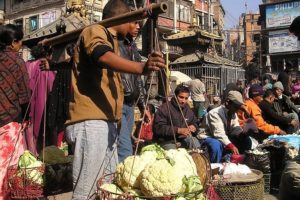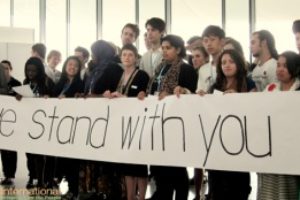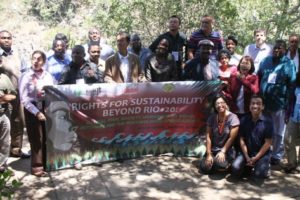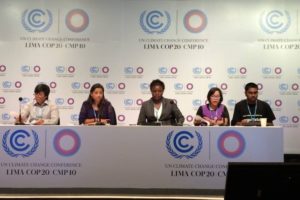IBON International Statement for UNCTAD XIV, Nairobi, Kenya
17-22 July 2016
The fourteenth session of the United Nations Conference on Trade and Development (UNCTAD XIV) comes at the heels of WTO 10th Ministerial Conference last December 2015 in Nairobi, where the US, EU and other developed countries slayed the Doha Development Round in order to introduce “new issues” into the multilateral trading system. The no-consensus Nairobi declaration is practically a death certificate for DDR, while the “new issues” that the developed countries are pushing for would further empower developed countries’ transnational corporations and bolster their dominant position in the world economy.
Beyond WTO, developed countries led by the US, EU, Canada and China are pushing the agenda of broadening and deepening the scope of neoliberal free trade through mega-regional or plurilateral deals currently being negotiated, such as the TTIP (Transatlantic Trade and Investment Partnership), EU-Canada CETA (Comprehensive Economic and Trade Agreement), TPP (Trans-Pacific Partnership), TiSA (Trade in Services Agreement), and RCEP (Regional Comprehensive Economic Partnership).
Essentially, these deals will accelerate the centralisation of public resources, assets and the commons to corporate ownership and control, further concentrating wealth and power in the hands of the global corporate elites while setting back important gains achieved through collective assertion of people’s rights, such as policies on workers’ welfare, regulation of corporate behaviour and protection of the environment. Such neoliberal trade agenda are contrary to the avowed transformative goals of the 2030 Agenda for Sustainable Development, which the same member states agreed to at the UN Sustainable Development Summit last September 2015.
At the UNCTAD XIV, developed countries are expected to bat for the same issues and policy proposals on neoliberal trade and investment. Though UNCTAD is different, such that its role and mandate is to push for reforms in the international trade, financial and development regime in the service of developing countries, this mandate has continuously been eroded for years giving way to neoliberal globalisation.
To strengthen and reclaim UNCTAD’s role and mandate, it is necessary to grasp the ideals on which it was founded on: the spirit of Bandung. The Asia-Africa Conference of 1955, also known as Bandung conference, was initiated by newly independent countries striving to assert their national sovereignty and independence in the face of neo-colonialism, the Cold War and nuclear armament. The conference forged a 10-point declaration called Dasa Sila Principles:
1. Respect for fundamental human rights and for the purposes and principles of the charter of the United Nations
2. Respect for the sovereignty and territorial integrity of all nations
3. Recognition of the equality of all races and of the equality of all nations large and small
4. Abstention from intervention or interference in the internal affairs of another country
5. Respect for the right of each nation to defend itself, singly or collectively, in conformity with the charter of the United Nations
6. (a) Abstention from the use of arrangements of collective defence to serve any particular interests of the big powers, (b) Abstention by any country from exerting pressures on other countries
7. Refraining from acts or threats of aggression or the use of force against the territorial integrity or political independence of any country
8. Settlement of all international disputes by peaceful means, such as negotiation, conciliation, arbitration or judicial settlement as well as other peaceful means of the parties own choice, in conformity with the charter of the United Nations
9. Promotion of mutual interests and cooperation
10. Respect for justice and international obligations
Bandung’s historical significance extended to the initiation of the Non Aligned Movement (NAM) of developing countries in 1961 and the campaign for a New International Economic Order (NIEO) in 1974. The same aspirations of independence, liberation, peaceful coexistence and development for developing countries drove the founding of UNCTAD in 1964, led by new members of the UN coming from developing countries.
The spirit of Bandung is still very much relevant today. The dominance of foreign monopoly capital in almost all aspects of our societies must be met with a stronger solidarity among peoples of the world resisting oppression, exploitation, plunder, and war. The neoliberal agenda in trade and investment must be met with an alternative trade regime that answers to people’s needs and demands, and requires states to uphold: 1) Sovereignty and people’s rights, 2) Democratic decision-making, 3) Solidarity, mutual cooperation and complementarity among states, 4) Friendship and peaceful coexistence, 5) Environmental sustainability, and 6) Accountability to the people.
_____________________________________________________________________
*IBON International (www.iboninternational.org) engages in capacity development for people’s rights and democracy around the world. It strengthens links between local campaigns and advocacies to international initiatives and brings development issues from the international arena in a way that peoples’ organizations and social movements can engage with at country level.



